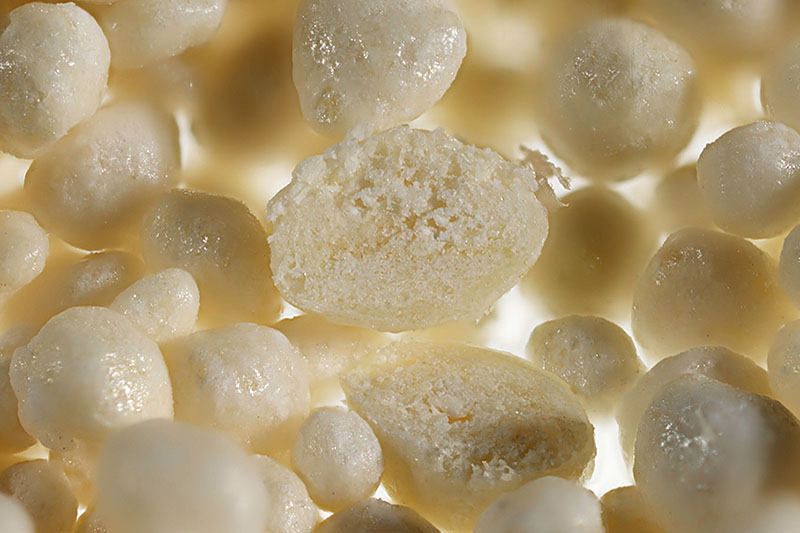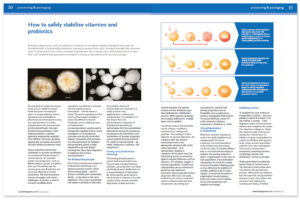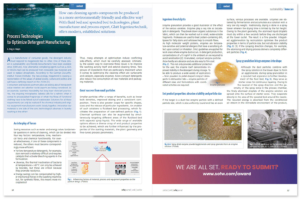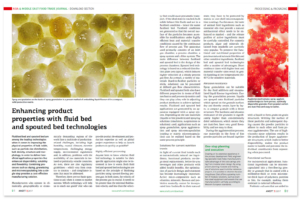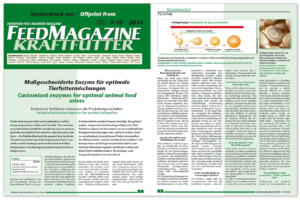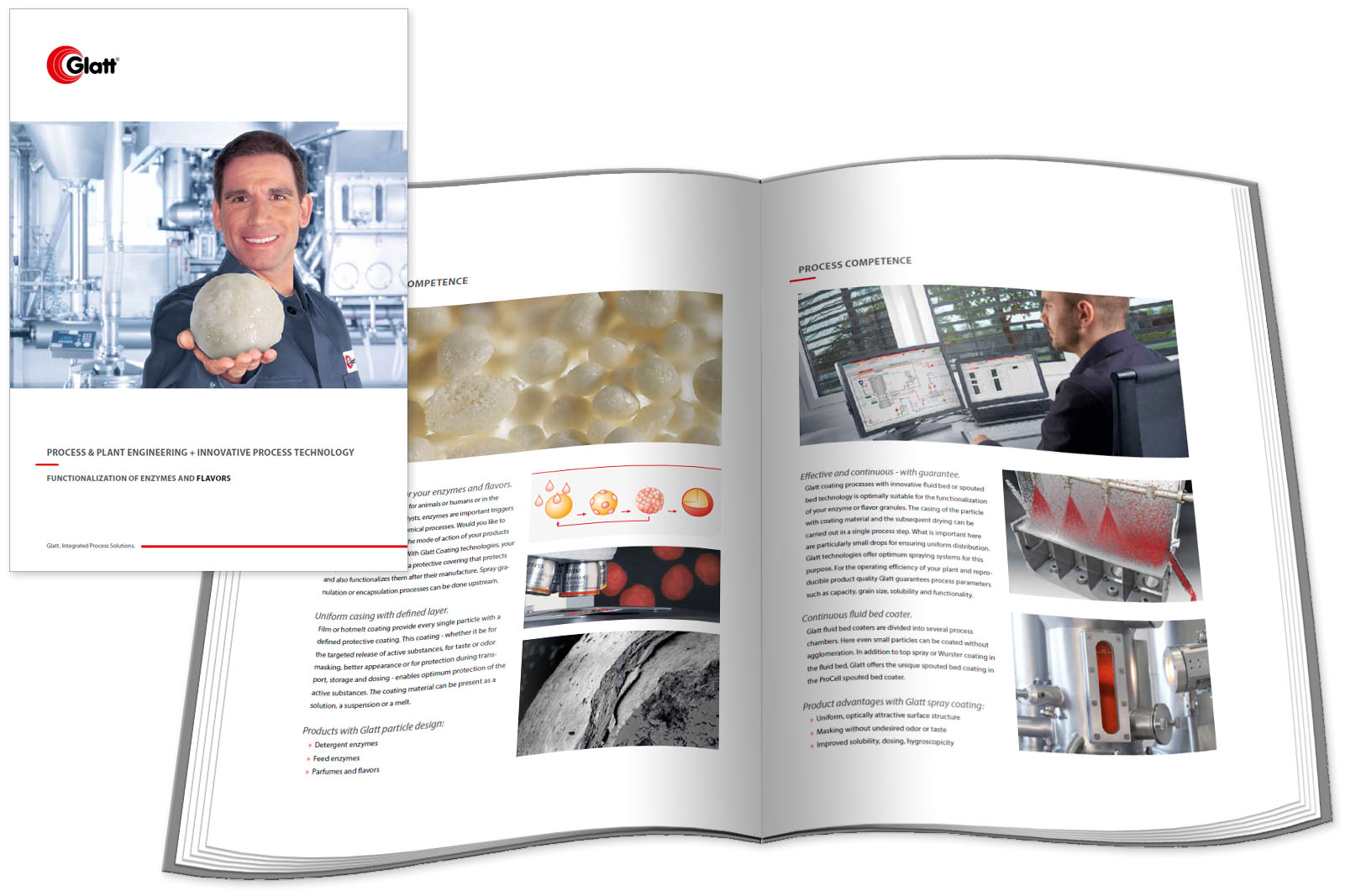Enzyme pellet with protective coating in the fluid bed or spouted bed
Compact, allergen-free enzyme pellets with freely selectable particle size
Enzymes are fermented biotechnologically on a large scale. In their liquid state, however, enzymes have only limited storage stability. In many cases, spray drying is used to produce a fine powder. Due to their allergen potential, enzyme powders are a challenge to handle, since each particle – if it comes into contact with a sensitized organism – harbors the possibility of an allergic reaction.
The aim is therefore to formulate enzymes as dust-free as possible, which can be achieved by subsequent spray agglomeration, but the resulting granules are usually not as abrasion-resistant. A better option is spray granulation, which forms compact and abrasion-resistant solid particles directly from the enzyme solution.
The temperature is so low that the enzyme activity is not adversely affected – while the drying rate remains high. In addition, the degree of activity can be adjusted. This is done either by adjusting the ratio of enzymes to additive or by using additional carrier powders that are homogeneously incorporated into the granule structure. The particle size of the powder can be freely selected via a sieving step. Coarse and fine particles are returned to the process after treatment. They serve as new starter cores for the layer build-up by continuous spray granulation. The round, dust-free and free-flowing granules can now be further processed as required. It is particularly suitable for coating with functional coatings that provide protection against thermal stress or protect substances from the reactive enzymes. Controlled release is also feasible.
Enzyme pellets can also be produced in a layering process using a batch process. Here, a starting material is required that ideally consists of defined particles with a narrow particle size distribution. Crystalline carriers and coarser powder fractions are used here. The activity is adjusted by the amount of enzyme sprayed on.
There is a wide variety of process variants based on fluid bed technology or spouted bed technology. At the Glatt Technology Center in Weimar, we work with you to determine the optimum process conditions for your product in feasibility trials for product development. Various laboratory facilities and comprehensive analytical equipment are available for this purpose. On our pilot plants, we optimize the process and scale it up reliably to a stable and economical production scale. The results from this form the basis for the design and construction as well as the erection of your fluid bed or spouted bed plant, tailored to your requirements. As an alternative to our own process technology, we offer you the outsourcing of your production by means of contract manufacturing at Glatt.
Further information on this topic can also be found in the following publications:
Published article: ‘Hot-melt applications for the food and beverage industry – How to safely stabilize vitamins and probiotics’ PDF, Englisch
Published article: ‘Process Technologies to Optimize Detergent Manufacturing’ PDF, English
Published article: ‘Enhancing product properties with fluid bed and spouted bed technologies’ PDF, Englisch
Published article: ‘Customised enzymes for optimal animal feed mixes’ PDF, English
Flyer A4: Glatt Functionalization of Enzymes and Flavors, PDF, English

